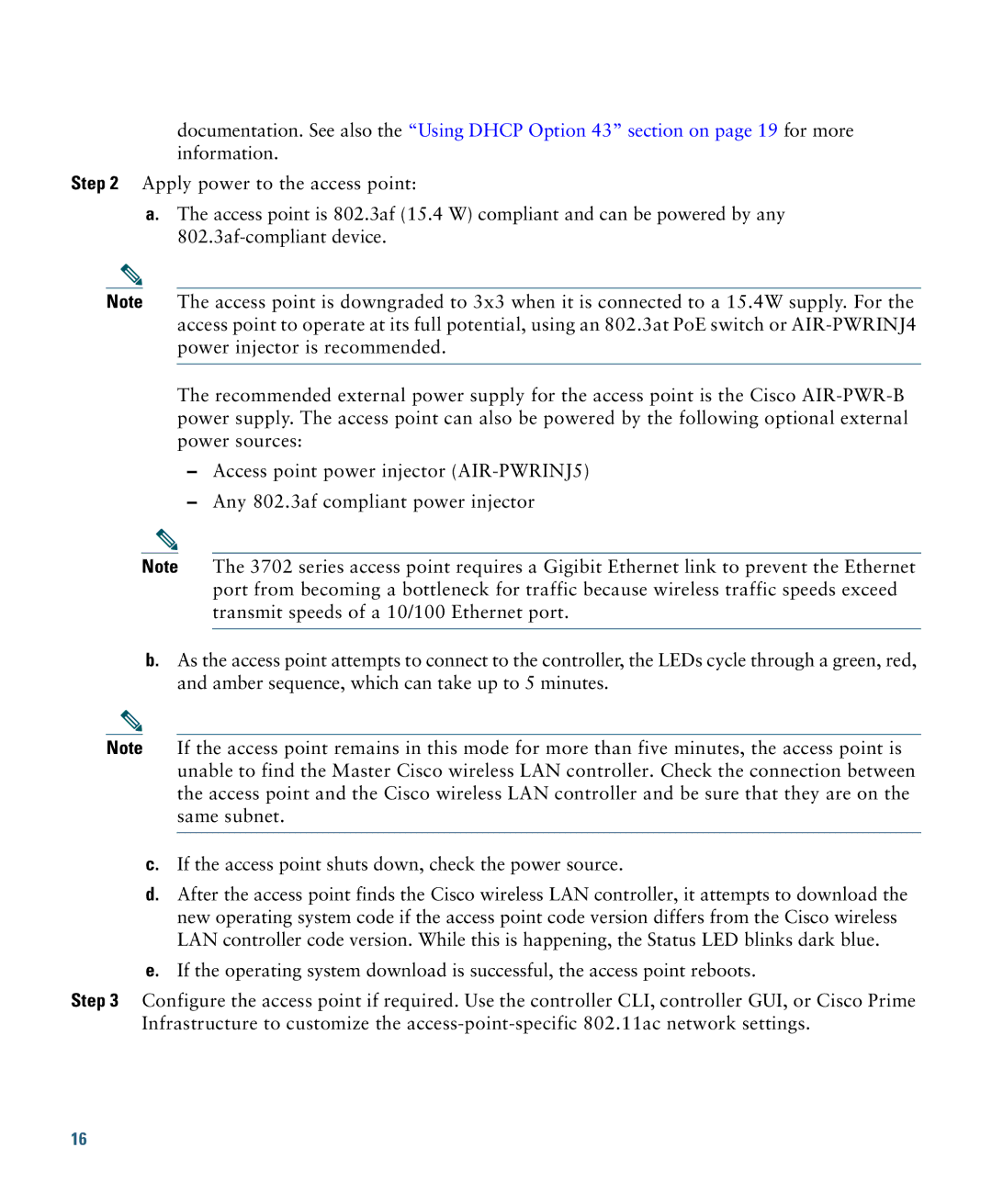
documentation. See also the “Using DHCP Option 43” section on page 19 for more information.
Step 2 Apply power to the access point:
a.The access point is 802.3af (15.4 W) compliant and can be powered by any
Note The access point is downgraded to 3x3 when it is connected to a 15.4W supply. For the access point to operate at its full potential, using an 802.3at PoE switch or
The recommended external power supply for the access point is the Cisco
–Access point power injector
–Any 802.3af compliant power injector
Note The 3702 series access point requires a Gigibit Ethernet link to prevent the Ethernet port from becoming a bottleneck for traffic because wireless traffic speeds exceed transmit speeds of a 10/100 Ethernet port.
b.As the access point attempts to connect to the controller, the LEDs cycle through a green, red, and amber sequence, which can take up to 5 minutes.
Note If the access point remains in this mode for more than five minutes, the access point is unable to find the Master Cisco wireless LAN controller. Check the connection between the access point and the Cisco wireless LAN controller and be sure that they are on the same subnet.
c.If the access point shuts down, check the power source.
d.After the access point finds the Cisco wireless LAN controller, it attempts to download the new operating system code if the access point code version differs from the Cisco wireless LAN controller code version. While this is happening, the Status LED blinks dark blue.
e.If the operating system download is successful, the access point reboots.
Step 3 Configure the access point if required. Use the controller CLI, controller GUI, or Cisco Prime Infrastructure to customize the
16
